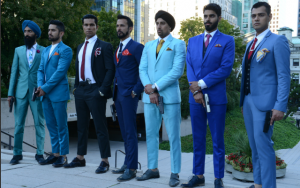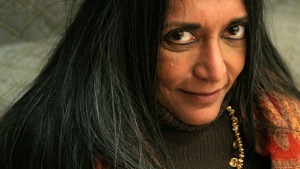Metro Canada: Deepa Mehta surprises herself with “Beeba Boys.”
 By Richard Crouse – Metro Canada
By Richard Crouse – Metro Canada
“The whole point of doing work is to surprise yourself and others,” says Deepa Mehta. The director of art house hits like Water, Bollywood/Hollywood and Midnight’s Children will certainly raise a few eyebrows with her new film Beeba Boys.
The movie is a violent look at a Vancouver gang of second and third generation Indo-Canadian criminals known as the Beeba Boys. It features the first car chase in any of her films and certainly contains more gunplay and violence than any other of her personal, introspective movies.
“I’ve always been a sucker for gangster films,” she says. “Tarantino, eat your heart out.”
The Toronto-based Mehta first became aware of Vancouver’s Sikh gangs from a CBC documentary. It’s a violent culture she says the rest of the country is largely unaware of—“After you cross the Rockies it’s like everybody has amnesia about what happens in our own country.”—but one that gripped her.
“As a director it is really exciting for me to explore a world I don’t know much about. It is a learning process. Exploring this world of Beeba Boys, of gangsters, the search for identity, the desire to be seen, the looking for acceptance is a world that is very familiar to me but the way it is told is completely unfamiliar. That was exciting.
“They’re not like the Mafia. They’re not at all like the Triads. They’re not at all like the Yakuza and they’re not like the Hell’s Angels. They are very culturally based and I found that fascinating.”
Whether it is a period piece or a modern day film Mehta’s work turns the camera on her community and the underpinnings of that culture. Critics have expressed surprise at Beeba Boys because when you put a gun in somebody’s hand in a Deepa Mehta movie that’s what draws all the attention.
“I’m just happy they are talking about the film,” she says. “The ones who want to focus on the guns will focus on the guns and that’s fine. Each to their own. The ones who know my work and wish to see something that is not just on the surface will see that it is a continuation of my work. Thematically it is a continuation of everything I’ve done because it is a film about identity but the story is different and the story calls for gangsters and of course they are not going to be carrying lollipops in their hands. Let’s get real.”

